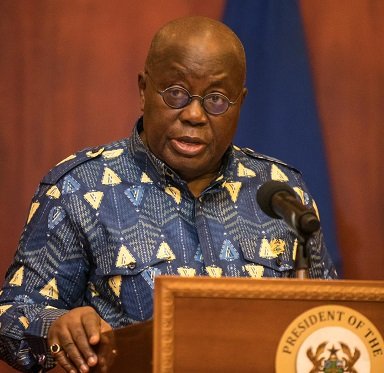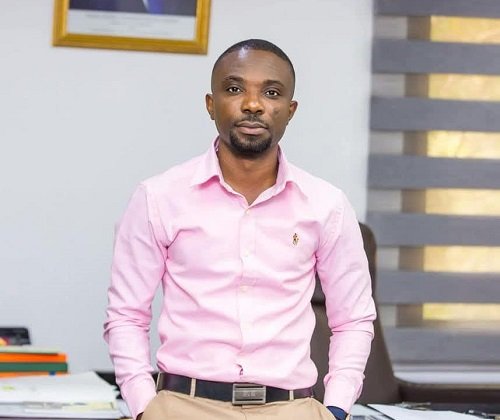Hot!
10,000 schools to benefit from $219m education improvement projects

President Nana Addo Dankwa Akufo-Addo has launched the Ghana Accountability and Learning Outcomes Project (GALOP) to help improve the standards and quality of education in low-performing basic schools across the country.
The project, which was launched at the Jubilee House in Accra yesterday with the support of the World Bank, is expected to improve the quality of education in 10,000 schools across the country.
Under GALOP, government will invest US$219 million on a comprehensive set of interventions that addresses constraints from teaching to learning in basic schools.
President Akufo-Addo said the project will ensure that teachers in the early grades are given the necessary support to continue learning in line with the new curriculum introduced by the government.
In addition, he said schools will receive teaching and learning materials, heads of schools will be trained on improved school management techniques, and supervision and assessment systems will be strengthened.
“Ten thousand low-performing basic schools, across the country, have already been selected to benefit from the Project, and I am confident that the implementation of GALOP would help drive standards and quality in these schools,” he said.
President Akufo-Addo observed that in spite of the numerous steps taken by his administration over the last three and half years to improve basic education in the country, a lot more work needs to be done.
“We must address the problem of low learning outcomes that reflect in the performance of some of our children at the Early Grade Reading Assessment (EGRA), Early Grade Mathematics Assessment (EGMA), and Basic Education Certificate Examination (BECE),” he said
The President said government has implemented significant reforms to improve access, quality of education, infrastructure, teacher training and professionalisation, curriculum development, school inspection, and technical and vocational education and training.
Through the Free Senior High School (SHS) policy, President Akufo-Addo noted that 1.2 million Ghanaian children, the largest in the history of the country, are now in the country’s education ecosystem, 400,000 of whom would otherwise have been excluded.
“Over the last three and a half years, we have done a significant amount of work to boost education at the primary school level. In September 2017, we introduced a new curriculum for kindergarten to primary `school that reflects the realities of our aspirations. Under this administration, we have increased the capitation grant by 120 per cent from GH¢4.50 per child to GH¢10.00. We continue to invest in infrastructure, and in the supply of teaching and learning materials for our children,” he said.
The Minister of Education, Mathew Opoku Prempeh, said the government considers education as the shortest distance to migrate from poverty to prosperity and will be made available to all.
“As a country, we have had several challenges with quality learning outcomes reflecting in our poor performance in our early grade reading assessment, early grade mathematics assessment, programme for international students assessment and, with the West Africa Students Examinations, the results have not been very good,” he said.
The Education Minister said the government has introduced several measures to reform and improve the quality of education and indicated the GALOP will be one of the largest investments in the basic school sector to further help improve the quality of education.
Source: Ghanaian Times
Hot!
Education free, but parents have roles to play – Anloga DCE

Madam Sandra Seyram Kpedor, the District Chief Executive (DCE) of Anloga in the Volta Region, has emphasised the importance of parental involvement in children’s education, stating that education is free, but parents need to do more to support their children.
She said parents, teachers, and students must be involved in addressing the challenges facing the district’s education sector, particularly the poor Basic Education Certificate Examination (BECE) results.
Madam Kpedor outlined some key roles parents should play to promote their children’s education, including providing a conducive learning environment, monitoring their children’s progress, and supporting teachers.
The DCE highlighted some challenges the district faced such as inadequate infrastructure and a shortage of teachers, which have also contributed to the poor BECE results and called on well-to-do parent to help solve the situation through and other supports.
To address the issues, she also announced that plans have been taken to utilise the district’s common fund to implement educational projects, such as constructing school blocks and teachers’ bungalows at Sodzi community, and 2-unit classroom blocks each at Akplorwutorkor and Tegbi-Afedome respectively, among others.
Madam Kpedor also noted that her office had earlier notified the Ministry of Education to deploy more teachers to the area to improve teaching and learning, and encouraged students to work hard and strive for excellence, and work beyond their limit to succeed.
“To my wonderful and beautiful girls, you have to know it clear that women and girls have equal opportunities to compete with men for greater achievements,” she indicated.
The DCE cited her own achievement as a testament to the fact that women can excel in leadership positions, alongside Vice President Nana Jane Opoku-Agyemang, and stressed that girls were no longer limited to domestic roles but can pursue their dreams and become leaders.
Additionally, she mentioned that a meeting was held earlier with assembly members, and other stakeholders to address the district’s educational challenges and improve academic performance.
She promised that the district’s education oversight committee and stakeholders would work together to address the challenges and improve the district’s BECE results and called for parental involvement and support to boost the district’s education sector for children to chase their dreams to become future leaders for the success of the district and the nation.
She urged parents not to leave everything to the government but rather help in the provision of some necessary materials such as textbooks, exercise books, pens, pencils, food, and guidance to children for the successes of young learners. –GNA
Join our WhatsApp Channel now!
https://whatsapp.com/channel/0029VbBElzjInlqHhl1aTU27
Hot!
Dennis Miracles Aboagye criticises NDC’s “no fee stress policy” implementation

The spokesperson for Dr. Bawumia, Dennis Miracles Aboagye, has criticised the implementation of the NDC government’s No Fee Stress policy, arguing that the programme has failed to deliver on its core promise.
According to him on Starr fm, the policy, which was introduced to ensure stress free payment of fees for level 100 tertiary students, has rather turned into what he described as post stress support.
He explained that students are required to pay their fees first before applying for reimbursement, a situation he believes defeats the purpose of the policy.
He questioned claims by government officials that the policy has been successful and that citizens are happy.
In his view, such claims do not reflect the lived realities of many Ghanaians. He stressed that while some people may appear satisfied, many others continue to struggle.
Dennis Miracles Aboagye pointed to the situation of trained teachers and nurses who have been picketing for nearly six months, demanding employment.
He noted that government responses suggesting it cannot accommodate all of them contradict claims of economic stability.
He further argued that economic indicators such as a stable currency mean little to people who are unable to secure jobs or access promised support.
He observed that telling an unemployed teacher or a struggling student that the cedi has strengthened does not address their immediate challenges.
On the issue of tertiary education, he maintained that no level 100 student benefited from stress free fees in 2025, despite the policy being announced.
He added that in 2026, students have already reported to school without receiving the promised support.
He insisted that asking students to pay fees first and seek reimbursement later amounts to support after hardship, not stress free education.
According to him, this approach goes against what was promised during the policy announcement.
Dennis Miracles Aboagye questioned why a government that presents the economy as strong is unable to fulfil what he described as simple and clear promises.
He added that there is a fundamental problem with the way the economy is being managed and indicated that he is prepared to explain his position further.
By: Jacob Aggrey







